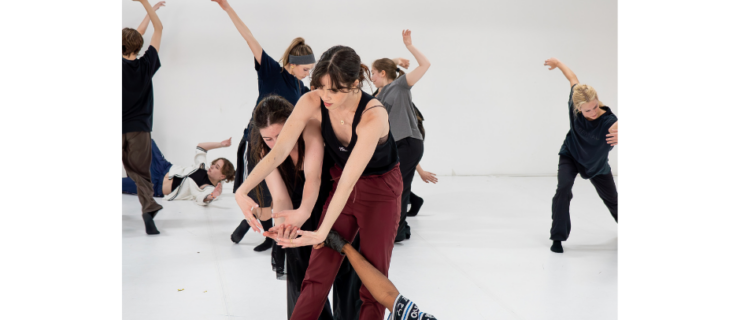Knocked Sideways
Harsh words from critics, now and forever a click away on the Internet, can harrow. This seems pretty plain, I know. But, amazingly, I had never really given this much thought until one day last spring when I wanted to put my head in the oven and kill myself because of a wretched review. Until then, I had never placed much stock in reviews and now I found myself unable to defang one of them. Everywhere I went, I felt it snapping at me from all sides like a terrier. What had become of my poise? Baffled and battered, I reviewed my past for answers.
I got my first mention in the press when I was 23. Waking before sunrise on a summer morning in 1982, I sprinted to the newsstand on Saint Mark’s Place (modern dancers still lived in the East Village then) and seized a copy of The Village Voice. A blessing was bestowed. Modesty forbids that I repeat it verbatim. But don’t think I couldn’t. My ego ran with it. I shall make my mark on this land, I proclaimed, and shepherds quaked. I tendered my regards to Broadway with remembrances to Herald Square and sauntered home.
Well, youth laughed and wept and lived its heedless hour and of course things didn’t go exactly as I’d planned that morning. I did not crack this town open like a walnut. I have made a career, it’s true—a long one and a good one. I have been and remain a dancer, a choreographer, artistic director of my own company and the maker of dances for many other companies both here and abroad. I also perform with other choreographers whom I admire. I love the whole deal.
Through all this I’ve enjoyed, on balance, fairly good press. There have been stabs here and there, but no lasting scars. Although I saw friends and colleagues lain low, hurt and buffeted by negative reviews, I didn’t understand their distress. How fragile they are, I thought to myself. Really, some critics are just serving the canine blood lust of their own readers. Some don’t “get it.” Others merely make fools of themselves posing as dictators of taste. The notion of a definitive critical evaluation is simply a fiction. Then one fine day I got slammed and found myself chewing a hunk of self-pity the size of Georgia.
Said slam was in response to an evening-length work that was, for me, something of a departure. I had based much of it on a work I made at Juilliard in 2006 for 24 dancers that was a mingling of classical and percussive dance overlaid with a latent romanticism. It delighted me and I wanted to build on it for my New York season presented by Dance Theater Workshop the following spring. This was my sixth season at Dance Theater Workshop and I felt at home. I thought I was pushing a custard pie into the face of my old work by cultivating something more austere, and, like an elusive lover, more remote. Stealthily I concocted the notion that I should be rewarded for my bravery and for my “risk.” Then the other jackboot dropped. No good deed goes unpunished . . . .
It’s impossible for me to read a review of my own new work rationally. I don’t even know if that would be desirable. Reading a review is like eavesdropping on only one side of a conversation between members of the audience. But I was uncertain about what I was doing and I longed for some authoritative insight, so I was uncharacteristically vulnerable to pronouncements. Alas, reviews have no real use in actual creative activity. I find, and found again, my own strength in the creative process itself. No one else, critic or peer, can find it for me.
This tidy truth does nothing, however to address the sheer pain of the whole thing. Blame is exhausting to deal with. I felt dispatched by a guillotine tongue. After consulting several martinis and a competent therapist (not simultaneously) I began to gain some perspective. A review isn’t a symbol, a harbinger, or an edict. Critics write them as though they were exposing more about themselves than about any artist. I didn’t learn anything from the content of the review. But I learned enormously from my response to it.
I found that I don’t actually believe that abstractions and concepts are more meaningful than specific details. I don’t really want to pull back from a work to experience it remotely. I had been seduced by a lot of high-concept work happening in Europe and around me in New York. Much of it inspires me, but it doesn’t truly have to do with my own generative impulses. I found I could remain creatively impertinent without submitting to current pieties. I began to take more pleasure in the world as an aesthetic place, not just in terms of beauty but in terms of degree of artifice or stylization.
And I saw that natural and unnatural, masculine and feminine, gay and straight, ballet and hoofing, and art and entertainment are false opposites. In the work I’ve made since, I’ve dug down into my appetites once again. The self-pity has been gnawed down and swallowed. On track, I’m still headed where I was going in 1982—second star to the right and straight on till morning.
David Parker continues to be sanguine about reviews while working with his company, The Bang Group, on his choreographic reinvention of Annie Get Your Gun called ShowDown, which will enjoy an encore run in NYC in June.




